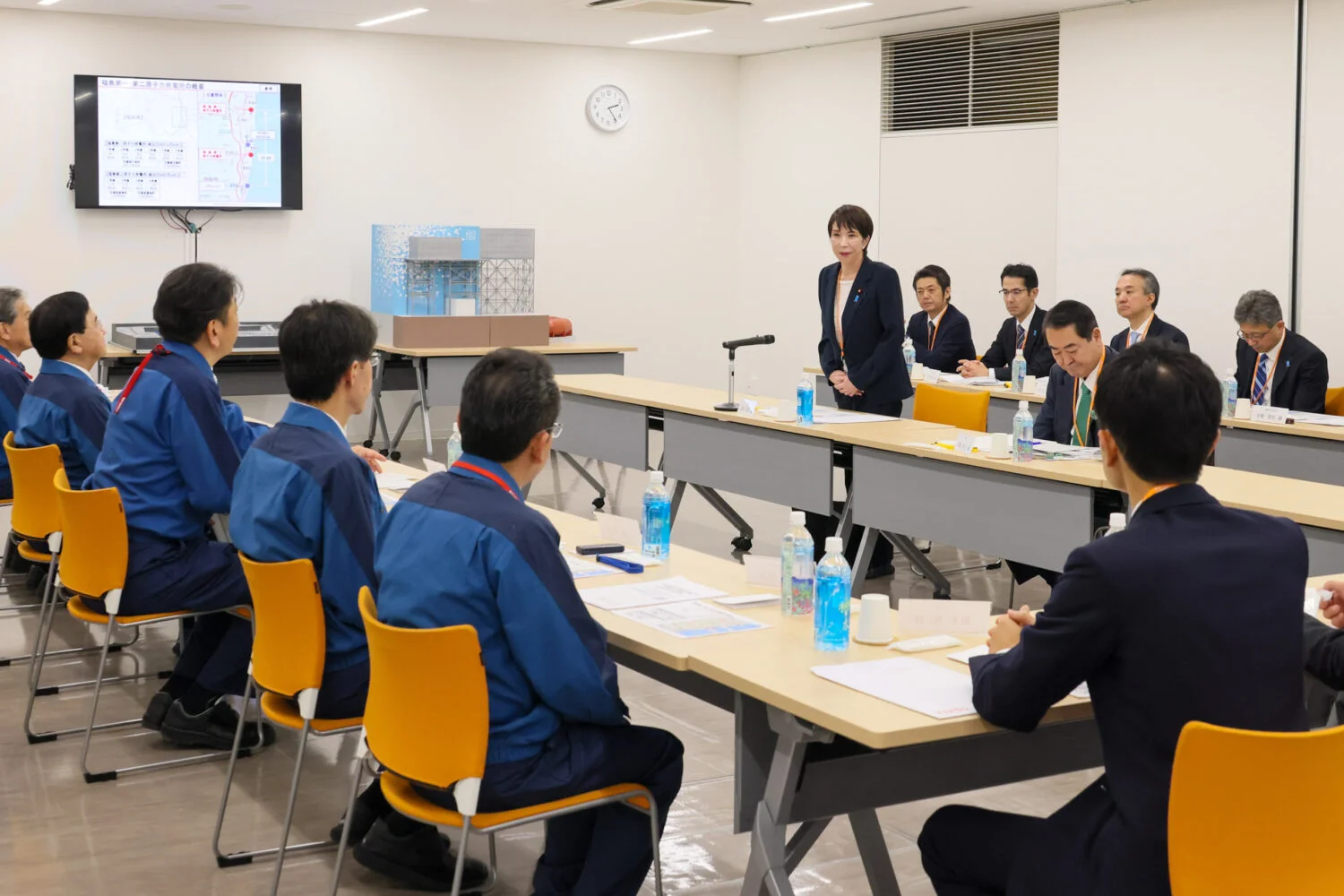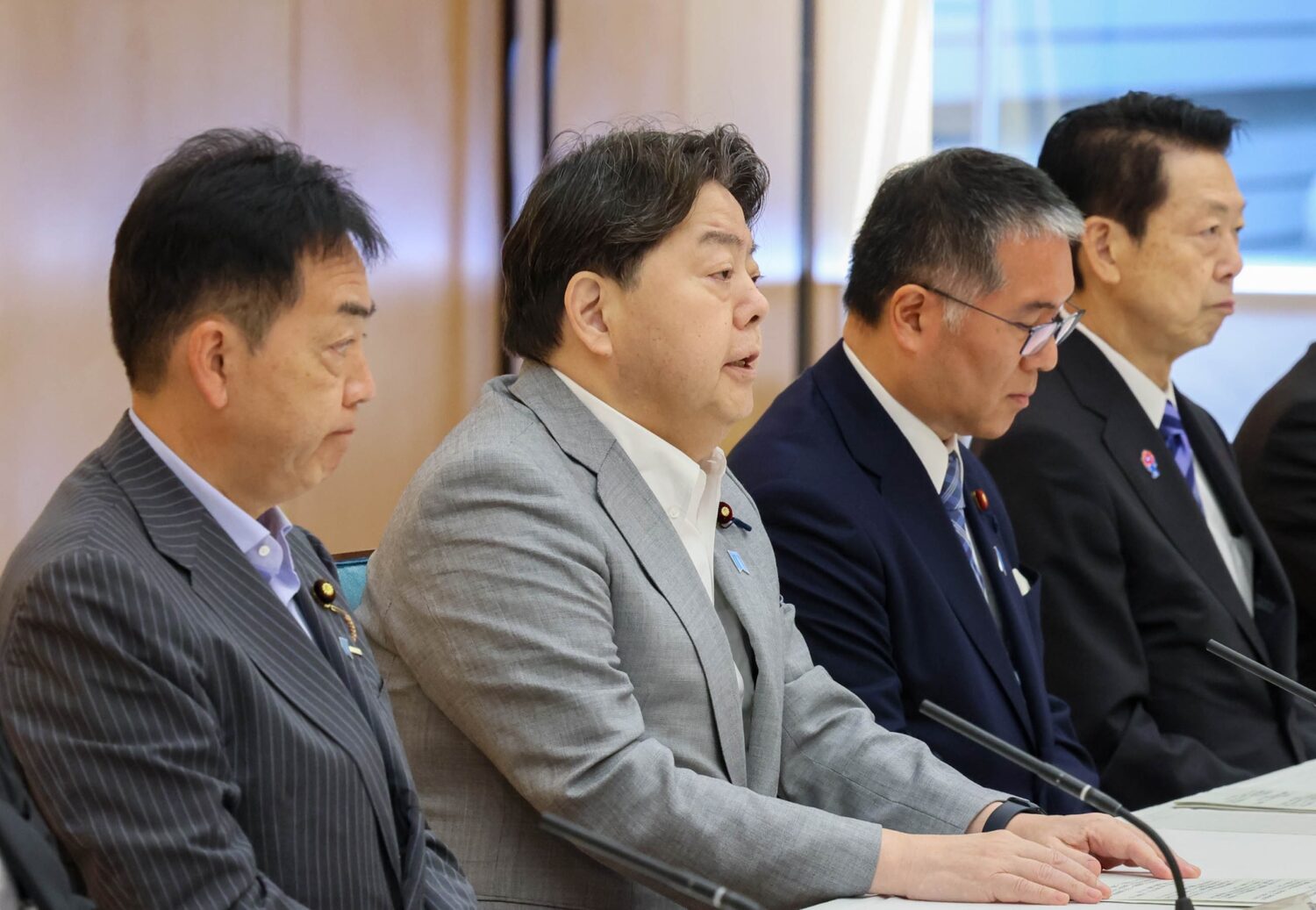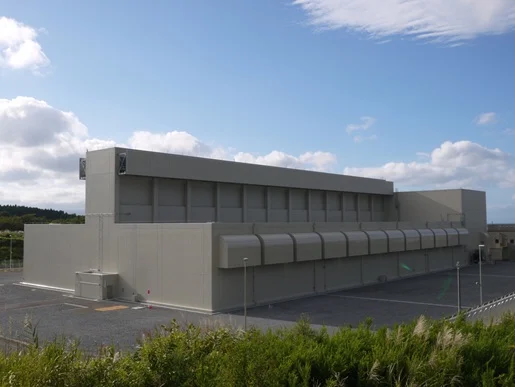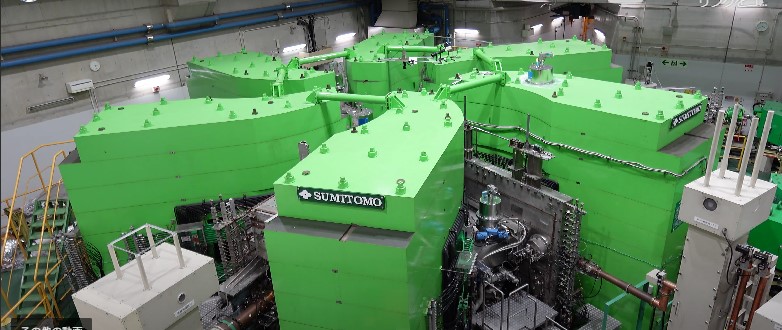The goal of the NGO—a network established in South Korea in 2018—is to “build an advanced society through rational resolutions of issues based on facts and science.” The policy of the former Korean administration (President Moon Jae-in, 2017-22) had been to phase out nuclear power, and it branded the treated water accumulated on the premises of Fukushima Daiichi “a hazardous substance that must not be released into the sea.” That view continues to influence public opinion in Korea.
The NGO responded to that situation by calling on the Moon administration to provide accurate information on nuclear energy and radioactivity. It has highlighted the matter through newspaper advertisements, signature activities, seminars, social media, and more.
The party of seven NGO members, including its director, PARK Kichol (former vice president of Korea Hydro & Nuclear Power, or KHNP), visited Fukushima Daiichi to see in person how the water is being managed and to gather and convey accurate information to the current South Korean government, members of the National Assembly, and the South Korean people.
The visitors first got an overview of activities at Units 1–4 and observed theALPS multi-nuclide removal equipment, which purifies contaminated water generated when cooling the reactor buildings. They also visited the construction site for facilities to release the water, the tanks for measuring and evaluating the water prior to release, and feeding trials for marine organisms being conducted as part of environmental monitoring.
After the visit, a member of the party said, “We understand that theunderstanding of local people must first be obtained before offshore release is allowed. That will be hard. We hope you can win their confidence.”
The NGO is now considering the issuance of some sort of publication concerning its visit to Fukushima Daiichi. Representatives said of their onsite visit that it was “touching to see thousands of people working quietly, diligentlyfor restoration.” They noted that tritium, which cannot be removed by ALPS, is regularly released into the sea at nuclear facilities in South Korea and in many other countries.
“In South Korea,” one of the visitors said, “there are still quite a few people who are against offshore release. We want to correct the distorted information aboutFukushima Daiichi and eliminate misunderstanding and fears about nuclear power and radioactivity.












